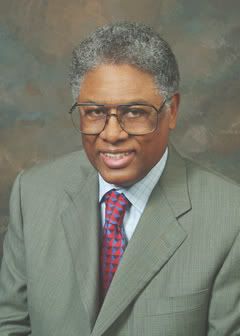 |
|
|
There are undoubtedly many people who are alive today because of James Q. Wilson, who died last week. He was not a doctor or medical scientist, nor was he a fireman or coast guardsman who rescued people from immediate dangers. James Q. Wilson was a scholar who studied crime. He saved lives because his penetrating analyses of crime, and the effect of the criminal law, debunked the theories of other intellectuals, which had led judges and legislators to ease up on criminals — leading in turn to skyrocketing rates of crime, including murder. Prior to 1960, murder rates in the United States had been going down for decades. Even the absolute number of murders declined, while the population grew by millions. Despite the addition of two new states — Hawaii and Alaska — in 1960, the number of murders in the 50 states was less than it had been in the 48 states thirty years earlier. The murder rate in 1960 was just under half of what it had been in 1934. But that was not good enough for the intelligentsia, with their theories on how to "solve" our "problems." First of all, they claimed, we had to stop focusing on punishment and get at the "root causes" of crime. In other words, we had to solve the criminals' problems, in order to solve the problem of crime. This approach was not new in the 1960s. In fact, it went back at least as far as the 18th century. But what was new in the 1960s was the widespread acceptance of such notions in the legal system, including the Supreme Court of the United States. The crusade against punishment, and especially capital punishment, spread through all three branches of the federal government and into state governments as well. Even a murderer caught in the act had so many new "rights," created out of thin air by judges, that executing him could require a decade or more of additional litigation, even after he was found guilty. The best-known product of this 1960s revolution in the criminal law was the famous Miranda warning, "You have the right to remain silent," etc. It is as if we are engaged in some kind of sporting contest with the criminal, and must give him a chance to beat the rap, even when he is guilty. In the aftermath of this revolution in the criminal law, promoted by the intelligentsia in academia and in the media, the long downward trend in murder suddenly reversed. By 1974, the murder rate was more than twice what it had been in 1961. Between 1960 and 1976, a citizen's chances of becoming a victim of a major violent crime tripled. So did the murder of policemen. People clever with words sought all sorts of ways of denying the obvious fact that the fancy new developments in the criminal law were catastrophically counterproductive. That was when James Q. Wilson's writings on crime burst upon the scene, cutting through all the fancy evasions with hard facts and hard logic. The idea that crime results from poverty, or can be reduced by alleviating poverty, Professor Wilson shot down by pointing out that "crime rose the fastest in this country at a time when the number of persons living in poverty or squalor was declining." He said, "I have yet to see a 'root cause' or to encounter a government program that has successfully attacked it." Nor did Wilson buy the argument that unemployment drove people to crime or welfare. He noted that "the work force was at an all-time high at the same time as were the welfare rolls." Nor were minorities frozen out of this economy. By 1969, "the nonwhite unemployment rate had fallen to 6.5 percent," he pointed out. By systematically confronting the prevailing notions and rhetoric with undeniable facts to the contrary, James Q. Wilson began to wear away the prevailing social dogmas of intellectuals behind the counterproductive changes in law and society. It was much like water wearing away rock — slowly but continually. The common sense that had once produced and sustained declining crime rates began to reappear, here and there, in the criminal justice system and sometimes prevailed. Murder rates began to decline again. James Q. Wilson was the leader in this fight. He said, "We have trifled with the wicked." There is no way to know which ones of us are alive today because of his work. But we all owe him a debt of gratitude. |
|
